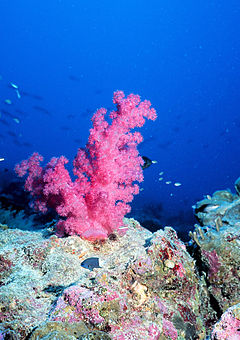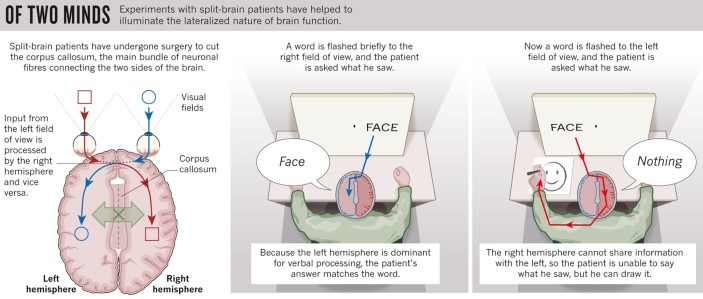A big part of this project is going to be shilling my schizo view of the landscape of the world. To that end, let’s talk about superorganisms, ontological materialism, and what they have to do with my claim that we live surrounded by and immersed in a world of alien intelligences. So first: a few words on superorganisms.

A superorganism broadly refers to a group of individual organisms that have an apparent collective will. An ant colony comes to mind. If you’ve never fallen down an ant rabbit hole before, go do some searching on ant behaviors. These creatures which are almost completely helpless on their own are capable of some astounding group feats that would seem to require advanced planning. These sort of surprising accomplishments that appear to be greater than the sum of their parts are sometimes called emergent behaviors. Of course, the classic emergent behavior is consciousness, as no one seems to believe an individual neuron is capable of conscious thought or awareness yet the network of billions evidently is.
Yet we don’t refer to ourselves as superorganisms even though we are comprised of hundreds of billions of biologically discreet cells. Many of these cells are not even of the same species; for example, gut flora has been found to have a profound impact on mental states. I think the reason for that is we already have a neat classification for organisms such as ourselves: the multicellular organism. Ants have all of the qualifications to be considered multicellular organisms, so biology deems them “alive” as discreet units. There’s like a hundred years of debate on this topic of what constitutes an organism versus when it’s simply convenient to refer to a “thing” as an organism and whether or not these definitions are reasonable.
In the very wikipedia article I linked on superorganisms, there is a debate on the topic of whether or not human beings ought to be regarded as superorganisms due to the very gut flora argument I presented above. Ultimately it doesn’t really matter (to me), because (I believe) the lines we draw to define biological system boundaries are arbitrary. True there is obviously at least one organism contained in the multitude of the cells that constitute your body: the one that is consciously aware of itself right now perceiving these letters. But there’s also obviously more than one. There’s the low hanging fruit, sure, like the various mites living on your face and the weird bacteria in your gut. There’s millions of those organisms. But what about your heart? Might we consider the organ an organism? And why not?
It’s an agent, and if you cut my heart out and put it in your chest (carefully) it very well may continue to beat. Too abstract and philosophical for you? Consider the case of the split brain. Multiple experiments have shown some differentiation between agentic behavior in the left and right brains when they are physically separated through a corpus colostomy. The strongest evidence being consistent emergence of alien hand syndrome when this procedure is performed. Some people go as far as suggesting this “second consciousness” is always present, and simply gets overridden and taken for a ride by the stronger, verbal, left brain consciousness. Or they suggest our unified conscious experience is somehow a combination of these two consciousnesses being connected. It’s a system of consciousness that begets our conscious experience.

Well I don’t know how much of that is true, but the evidence certainly suggests that it’s possible to have or create discreet conscious units within one normal human body. And nowhere in biology do we hold subjective conscious experience to be the standard for declaring an organism to be discreetly alive. I think anytime you have biological material exhibiting some sort of emergent property with some observable goal, it’s reasonable to draw a circle around that group of material and call it an agent. I also think it’s reasonable to call any agent that can carry out its goals while responding to setbacks intelligent, although I will hold off on actually calling it conscious until a later post. All conscious beings are necessarily intelligent agents, but not all intelligent agents are necessarily conscious.
So let’s draw another circle. I’ll draw a circle around all of the employees and officers of the US State Department. I might even be cheeky and include their computers and stuff (the human body has biologically inert infrastructure too!). But I don’t have to, let’s just draw the circle around around the humans. Are they exhibiting emergent properties? Well, obviously. For one thing they can sustain relations with countries in a way no individual can. More compelling, they can do it over a timescale that exceeds a human lifespan. They can also move resources and information faster than human legs can carry them. Does the US State Department have goals? Well whether we agree with their goals or not, it seems pretty clear that they have them. So is the US State Department an agent? Sounds like it!
Is it primarily made of biological material? It sure is! So is it “alive?” I think it is. But maybe you still disagree. Would you disagree if I said it was intelligent? That’s harder to refute isn’t it? It’s out there accomplishing goals. Through their practice of information compartmentalization, we know that the humans working to further those goals are likely unaware of them, and they certainly exceed the bounds of individual human understanding.
We are slowly arriving at the point of my post. This is how I see the world. Institutions, governments, nations, and even sometimes networked computers are alien intelligences as far as I’m concerned. They may be comprised primarily of human beings, but they are no less alien. What are you to an individual gut microbe? What is the microbe to you? My approach to dealing with institutions is more along those lines than along the lines of political science or civics. To me the problem of AI alignment is no different from aligning governments and institutions. In both cases you’re dealing with an intelligence greater than yourself, more powerful than yourself, whose inner mind is completely unknowable to you because it is so alien. We’ve been trying to solve the alignment problem for institutions for all of human history, and we’ve never succeeded. Perhaps it’s because we approach the problem the wrong way?

One response to “A Primer on My Worldview”
[…] is one I’d love to play someday, but alas! It’s probably not in the cards. As I’ve alluded to before, the organisms that play the sovereignty game are beyond you and […]